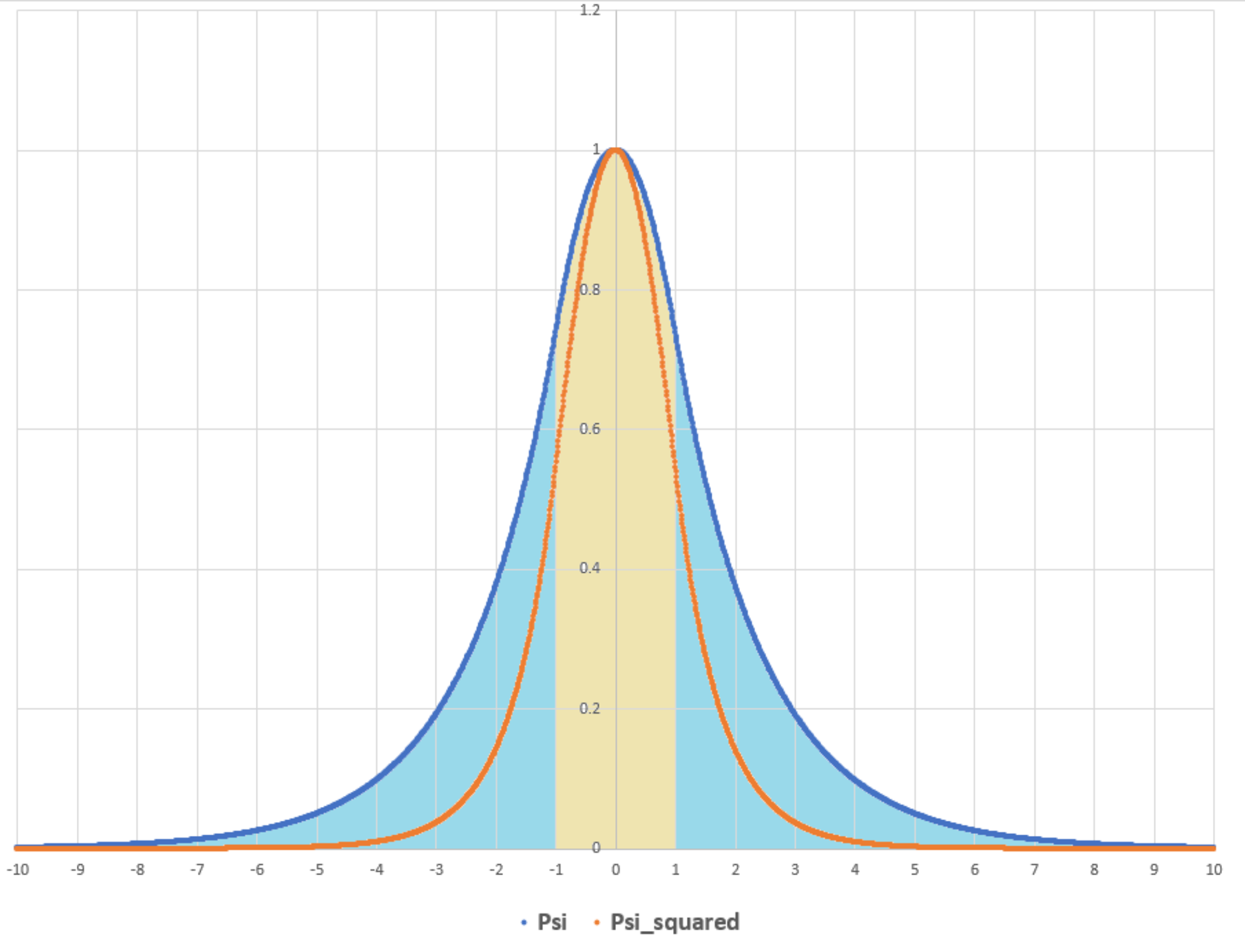Finite Quantum Well (Part 2)
This is a continuation of Part 1 .
Assuming that E takes its lowest (and only) allowable value, what is the probability of observing the particle outside the well in the region ∣ x ∣ > 1 ?
Note: The constraints from the previous problem apply here too

The answer is 0.33.
This section requires Javascript.
You are seeing this because something didn't load right. We suggest you, (a) try
refreshing the page, (b) enabling javascript if it is disabled on your browser and,
finally, (c)
loading the
non-javascript version of this page
. We're sorry about the hassle.
1 solution
Just do 1 − ∫ − 1 1 ψ ( x ) 2 d x = 1 − ∫ − 1 1 ( C o s ( √ E x ) ) ² d x which is equals to 0 . 3 3 . . . for minimum allowed energy E = 0 . 5 4 6 2 4 8 6 .
Log in to reply
Thank you for your comment. I understand your approach. However, there are two errors here. One is that the integral you have shown does not evaluate to approx. 0.66. Secondly, probability density functions are the absolute value squared of the normalised wave function and not of the un-normalised wave function itself. You have used the square of the un-normalised wave function here.
I wrote ψ ( x ) ² because here ψ is purely real. So, ∣ ψ ( x ) ∣ ² = ψ ( x ) ² .
Log in to reply
I understand this bit. This isn't the point I'm making, though. I request you to re-check your working as the integral you have shown does not evaluate to the correct answer.
Yes the answer comes 1-0.6737...≈0.33.
Log in to reply
I see that your first comment is edited. Unfortunately, the answer is still not obtained despite the correction. The integral: ∫ − 1 1 cos 2 ( x E ) d x = 1 . 6 7 3
It does not evaluate to 0.673. I request you to re-read my initial comment.
Since the solution is even, consider only the right half of the solution. COnsidering both halves of the solution will yield the same result. Assuming boundary conditions of ψ ( 0 ) = 1 and ψ ˙ ( 0 ) = 0 , we have:
ψ ( x ) = cos ( E x ) ; x ≤ 1 ψ ( x ) = A e 1 − E x ; x > 1
Now the value of E is known from the previous problem and the value of A can be obtained by ensuring that the wave function is continuous at x = 1 . This gives:
A = cos ( E ) e 1 − E
Now, the required probability can be computed as such:
P ( ∣ x ∣ > 1 ) = ∫ 0 ∞ ψ 2 ( x ) d x ∫ 1 ∞ ψ 2 ( x ) d x
The evaluation is a pretty standard process. The answer comes out to be:
P ( ∣ x ∣ > 1 ) ≈ 0 . 3 3